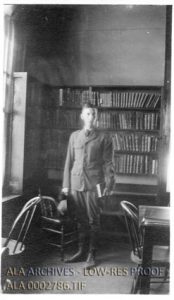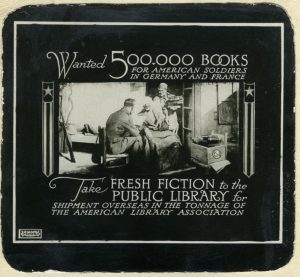
During the summer of 1918, Charles Green, a librarian from the Massachusetts Agriculture College, served as the Acting Librarian for Camp Johnston in Jacksonville, Florida. While his tenure was brief, the Charles R. Green Papers in the ALA Archives reveal Green’s rapid appointment and promotion. It also shows how quickly circumstances could change within the ALA’s Library War Service and the adaptability of its volunteers.
Camp Johnston presented unique challenges for a librarian. Not only was it a large base, but it was also a school that taught technical, engineering, and scientific subjects to servicemembers. These challenges led the camp’s librarian, L.W. Josselyn, to send a distressed letter to ALA. His letter from May 18, 1918, opened with, “A crisis has come in the work here which will have to be met within the next ten days at the very latest. I shall try to put the whole problem before you. Continue reading “Charles R. Green at Camp Johnston: “We Can Find Such a Man””
